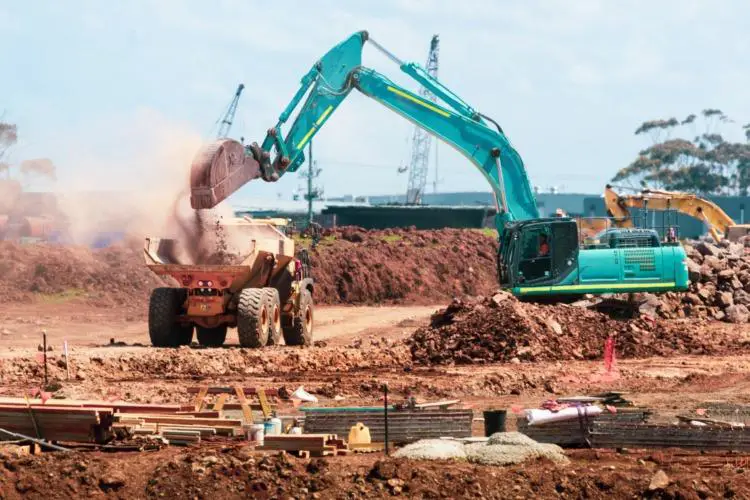Kenya’s construction industry is projected to grow by up to 3.9 percent this year, according to a new report by the Architectural Association of Kenya (AAK).
The report, dubbed Status of the Built Environment report, AAK however cautions that the growth can only happen if there is no repeat of the strict lock down that were implemented in the country last year after the emergence of the coronavirus pandemic.
The report says growth will be driven by several factors among them a sharp recovery in output levels compared to periods when works were not permitted or were severely restricted in 2020.
“In 2021, the construction industry is expected to improve, assuming a slowdown in COVID-19 cases and recovery in the global economy,” the report notes.
Kenya to start construction of double decker highway as World Bank consents to funding
The report notes that the second quarter of the year, for instance, recorded high growth Year-on- Year.
Growth will also be particularly propelled by huge infrastructural investments by the Kenyan government, such as the ongoing construction of the Nairobi Expressway as well as the Lamu Port under LAPSSET.
The dueling of the Nairobi-Mombasa Highway as well as the implementation of the affordable housing agenda will also drive the sector’s growth and recovery.
The projects
The Sh550 million Nairobi Expressway starts from Mlolongo in Mombasa Road, passes through the Jomo Kenyatta International Airport (JKIA) and Nairobi’s CBD to Westland’s area along Waiyaki Way.
The 27km highway, come of it elevated, is the first major project in the country to be carried out through a Public Private Partnership model.
Meanwhile, Sh310 billion Lamu Port is an ongoing project that is part of the regional Shs 2.5 trillion Lamu Port-South Sudan-Ethiopia Transport Corridor project (LAPSSET) launched in 2012.
This past May, Kenya’s President Uhuru Kenyatta operationalized the first berth of the new Lamu Port.
When complete, the port will have 32 berths, 29 of which will be financed by the private sector, making it the largest deep-water port in Sub-Saharan Africa.
During the event, Kenyatta said the new port will position Kenya’s economy on the continent and globally, aiding the country’s post-Covid recovery.
He added that the Lamu Port is strategically located at the convergence of major shipping routes, saying its operationalization will open up northern Kenya to international trade, thereby fortifying the country’s position as a top economic gateway to Africa.
The Nairobi-Mombasa Highway expansion on the other hand, will see the two-lane highway get converted into a dual carriageway to address the increasing traffic congestion between Kenya’s capital city Nairobi and the country’s major port city Mombasa.
Construction of $751.2 million Kenya-Tanzania Highway to begin in 2019
According to Road Traffic Technology, an estimated 95 percent of cargo from the sea Port of Mombasa is transported via the Nairobi-Mombasa motorway, making it necessary to expand the road.
Unveiled in September 2016, the highway expansion project, which forms part of Kenya’s Vision 2030 development programme, is maintained by the Kenya National Highways Authority (KeNHA) through a public-private partnership (PPP).
The Nairobi expressway project involves construction of an additional two lanes alongside the existing highway and rehabilitation of the current lanes.
On affordable housing, Kenya’s treasury ministry raised the allocation for construction of affordable houses during the country’s budget reading in June.
This was part of the government’s efforts to deliver President Uhuru Kenyatta’s promise of providing low-cost units before the end of his second and final term in office
The Ministry’s Cabinet Secretary Ukur Yatani said gave the docket Sh13.9 billion in the year starting July, a 100 percent jump from Sh6.9 billion in the current year.
“Key allocation includes Sh3.5 billion to Kenya Informal Settlement Improvement Project – Phase II,” said Yatani.
Affordable housing is one of the Big Four agenda in Kenyatta’s legacy projects ahead of the end of his term in August 2022.
The AAK report however notes that growth of the real estate and construction sectors will be pegged on the overall performance of the economy.
The Kenyan economy is projected to grow by 7 percent in 2021.
